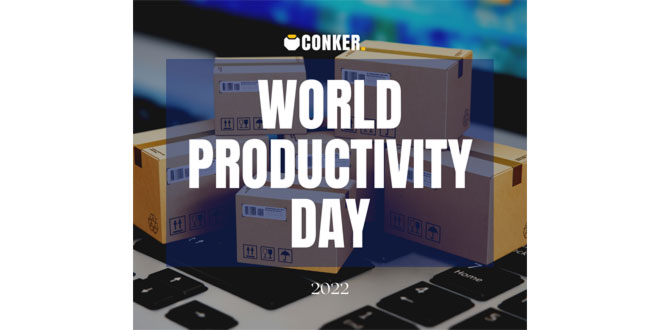
Productivity is defined as “the efficiency and quality of production of goods or services”. Some barriers to productivity include distraction and interruptions, lack of information, ineffective communication, insufficient training, inadequate tools and equipment, stress and too much to do.
Conker, which provides a range of rugged, wearable and scannable devices for mobile workforces, offers its top tips on productivity for warehouse managers.
Tenneil Olivier, manufacturing business development executive at Conker, comments: “An efficient warehouse is critical for customer satisfaction because it helps to ensure quick and accurate delivery of orders, increasing brand loyalty.”
A typical warehouse has a considerable amount of activity going on at any point in time. Streamlining processes to improve efficiencies can be achieved by considering warehouse layout, improving storage - based on the Six Sigma[1] principle from lean manufacturing, warehouse replenishment processes and streamlining picking and packing.
Adopting technology that can handle business demands and will ultimately help in improving productivity.
Using barcode or radio frequency identification (RFID) readers can improve the accuracy of transactions and reduce picking errors. Chartered Institute of Procurement and Supply (CIPS) research conducted at the University of Arkansas shows that using RFID increased inventory accuracy by 27 per cent in just 13 weeks.
Wearable scanners, designed to keep workers’ hands-free, can reduce each scanning action by a further five seconds – boosting efficiency and productivity even more.
When introducing wearables (or any device) it is vital to ensure that it neatly fits to the IT architecture stack for the business. The operator can then ensure items have been picked correctly by using a glove and PDA combination, and that back-end systems can monitor stock control in real-time through the smooth flow of data.
Devices that are “just tough” no longer meet the needs of many fast-paced hard-working environments. Buyers expect rugged device manufacturers to have considered operating systems, types of viewing screens, battery life, data security devices’ communications capabilities and ease of use.
But how do you know how tough, tough is? Rugged devices are a type of hardware designed specifically to tolerate the harshest environments. From extreme temperatures to dusty environments, wet conditions and then back into the office. They can tolerate a range of hazards including exposure to fluids and extreme vibrations. Touch screens can be operated with gloves on and as the battery life is designed to last an entire shift - rugged devices are built to last. These attributes can positively impact costs in downtime and time and cost to replace devices that are not durable enough. All Conker devices are drop tested typically to 1.2m and for peace of mind have the durability rating of IP65.
Increased speed and accuracy of working may be obvious. Other benefits of rugged wearables include the improvement of productivity as workers can scan items without interrupting workflow. Compared to traditional scanners and other mobile devices wearable devices are less likely to get damaged or dropped, resulting in lower equipment replacement costs over time. The ergonomic design of wearable scanners makes them feel natural to use in day-to-day operations. When a backhand scanner is used in conjunction with a glove, workers benefit from having a full range of hand and digit movement. Running on familiar operating systems also helps with a reduction in the need for training and easier adoption.
James Summers, CEO at Conker, added: “The products surfacing during this new era of smarter warehouses are further supported by automation and real-time connectivity with other departments. The results include increased productivity, reduced resources, and speed of response to customers’ orders resulting in improved bottom lines.
“It is vital that warehouse managers ensure good usability testing on all tablets, handheld and wearable devices, because good usability will help to support a happy workforce. And, they shouldn’t be afraid to demand upfront user testing before committing to new devices in the IT stack.”
Conker was founded in 2008 and offers a wide range of rugged devices for mobile workforces built on both Android and Windows platforms. The company is committed to improving productivity and workflows
UK-based, Conker devices are shipped from and serviced in the UK. Customers go directly through to a UK-based team person at Conker not to a switchboard or IVR.
The company was recognised as one of the FT 1000 Europe's Fastest Growing Companies (2018) and is a Winner Deloitte Technology Fast 500 (2017).